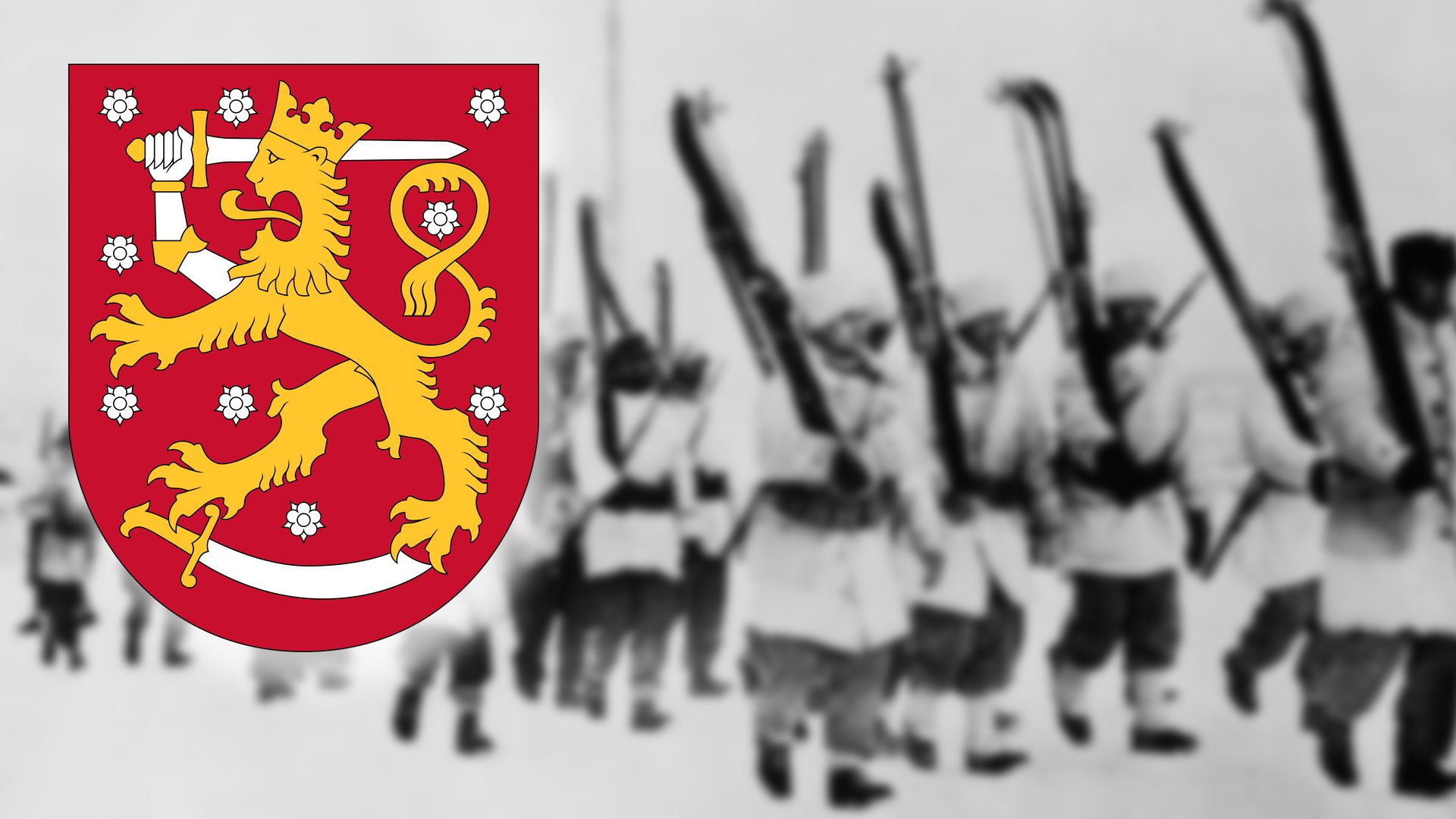 Finns are better able to understand Russia than most Norwegians. There are many lessons to be learned from how broad sections of the Finnish people relate to Russia and Russians.
Finns are better able to understand Russia than most Norwegians. There are many lessons to be learned from how broad sections of the Finnish people relate to Russia and Russians.
Finnish Sanna Sarromaa has created a debate with her article in the North Norwegian debate on 3 February, Livsløgnen i Nord. For someone who was born and raised in Kirkenes and raised in a Norwegian-Finnish culture, it is easy to recognize himself in Sarromaa's message. Although she is sloppy and rude in some of the comments, she is right in most things. As Norwegians, we have a lot to learn from the Finnish people, and it says a lot that the Finns' attitude towards Russia is met with astonishment from most Norwegians.
There is a reason why the Finnish national lion holds a sword that is ready to cut, while at the same time stepping on a Russian crooked saber. The history of the Finnish coat of arms can be documented as far back as 1580 and speaks its clear language about a long historical relationship with the Russian Empire. Finland has learned the hard way that Russia is untrustworthy and has for hundreds of years paid a high price for its neighborhood.
After the fall of the Soviet Union, the Finns believed that "the bear sleeps only". The Russian Empire is built on dramatically different values than the Nordic states, and such values do not change overnight. The current Russian regime, for example, does not respect previously concluded international disarmament agreements, and has broken most of them. For the Ukrainians, it is not worth much that Russia guaranteed Ukraine's security, when Ukraine gave up its nuclear weapons after the fall of the Soviet Union.
Russia has signed six different international agreements declaring it to respect the sovereignty of other states. In Russian culture, reconciliation and compromise are seen with contempt as a sign of weakness. There is a reason why Finnish culture treats Russians with unequivocal firmness and determination. It may sound silly to Norwegian ears, but there is a lot of bitter learning in the Finnish saying: "A Russian is a Russian, even if you fry him in butter."
The Russian regime is a criminal elite that has for a long time left the country they rule, and which will probably have a very short and dramatic sortie, if the Russian people are given the taste of freedom of speech and justice. Putin, like former Russian regimes, rules on the basis of repression and the use of force, and can never afford to step down as president and thus lose control. Putin's real nightmare is being surrounded by well-functioning democracies, where voters can regularly replace their leaders. If one looks at how Russian domestic policy plays out, it is difficult to find support for other perspectives. He is dependent on maintaining an enemy image that legitimizes the strong leader, and it is built by consistently dipping public communications in sufficient amounts of lies to justify the use of force. External forces are blamed for most of what is wrong, and reconciliation with democracies is undermined.
The ongoing conflict in Ukraine is not about NATO being a threat to Russia. NATO is a defense alliance that is defensively united in its statutes. Putin's position that NATO is threatening Russia requires that the 30 member states make a unanimous decision to attack the nuclear power Russia. It has no credibility. Putin has long since made a decision to invade and replace the regime in Kyiv, and today's Russian diplomacy is a spectacle and a masquerade.
At the previous crossroads, the Russian regime denied its intentions and that Russia had intervened in Ukraine, even while small green men were demonstrably standing in Crimea. The regime has no credibility. For Putin, it is about not being able to allow Ukraine and develop into a well-functioning democracy in Russia's own historic courtyard. It will remove the legitimacy of Putin's policies, and it will be the beginning of the end for him.
An old saying goes "tell me who you are with - then I'll tell you who you are". Putin is consistently building alliances with other despots and dictatorships whose history makes them equally dependent on oppressing their people.
With the above background, it is legitimate to question the wisdom of several of Norway's dispositions in relation to Russia. Even though the awareness of a new security policy everyday life is sinking in most Norwegians these days, it is a long way to go before the general care for Norway's security has once again taken root in the depths of the Norwegian people. This care never left the Finnish people. The total defense is again under construction in Norway, but there is a correspondingly long way to go before we can establish a security policy backbone reflex in larger parts of the Norwegian administrative apparatus. This spinal reflex was not even sufficiently established in the Ministry of Defense during the processing of the Bergen Engines case.
In the Duma, the Russian regime has adopted a doctrine in which they reserve the right to intervene in their neighboring countries, in order to protect Russian interests. This is also the regime's stated rationale for Russia's continued occupation and interference in Abkhazia and South Ossetia in Georgia and in the Ukrainian provinces of Luhansk and Donetsk. Consequently, it should also be obvious that conditions that promote Russian interests and Russian identity on Norwegian soil must definitely be kept at an arm's length.
Regional "people to people" contact is a good starting point for building mutual contact, insight, respect and understanding. But understanding each other does not necessarily mean that one must agree with the other party and give this acceptance for wishes and points of view. On Norwegian territory, there must be no doubt that Norwegian interests are sovereign and that no entry and foothold can be given for a Russian alternative. Russia's foreign policy shows us that it will be directly self-destructive and naive to allow clusters of Russian culture, Russian identity and lasting Russian interests to be formed on Norwegian territory. The core message of Sanna Saaromaa's statement is completely correct.
It is not unproblematic that the Russian identity on Norwegian soil is promoted with place names in Russian under the Norwegians on road signs in Sør-Varanger municipality. It has a heavy symbolic effect. It is also not without problems that it is almost as common with Russian as Norwegian speech in the cityscape in Kirkenes. It has a social psychological effect on both the Russian and the Norwegian population.
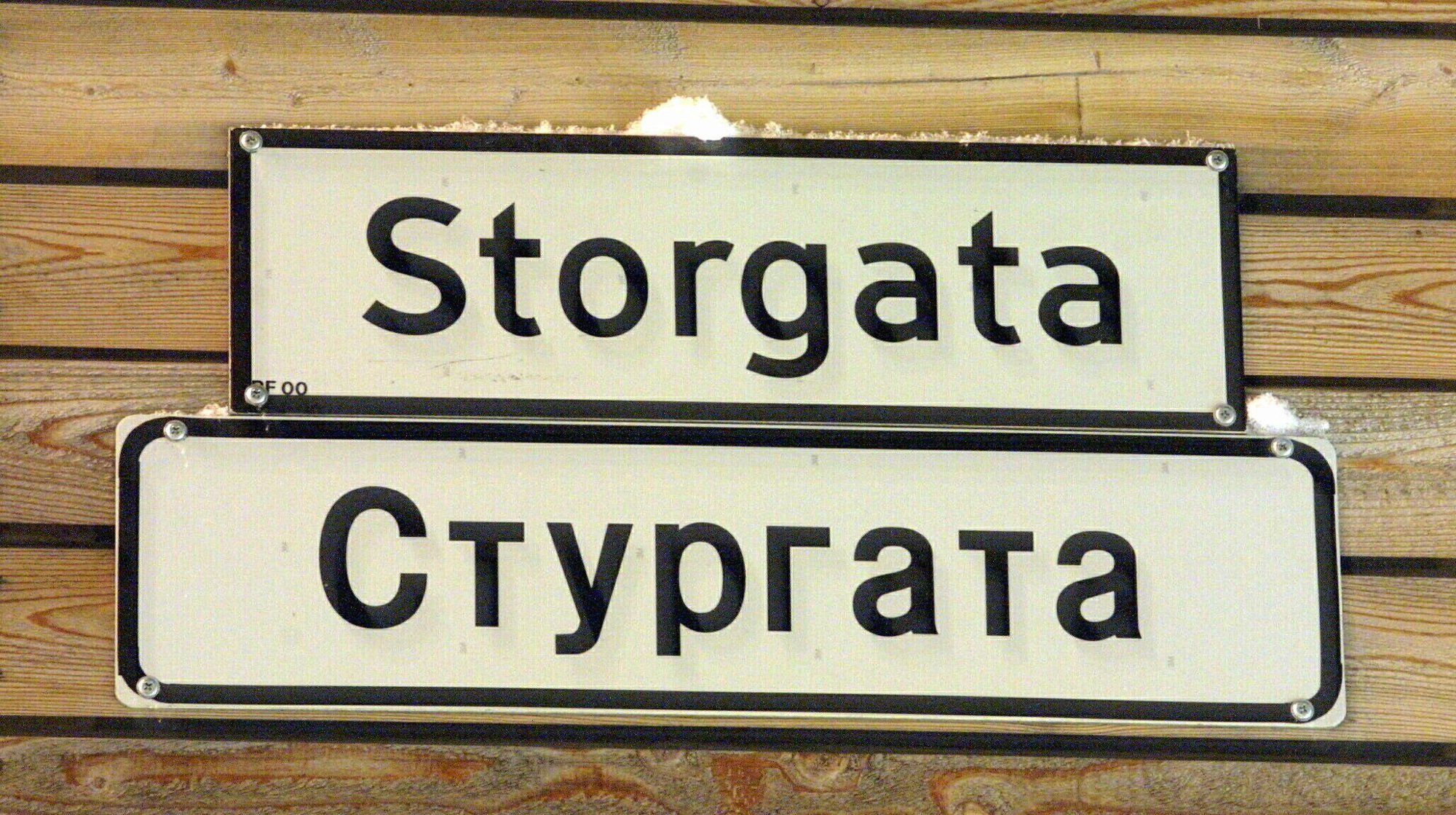
The Russian element in Kirkenes is very visible. Here street signs in Norwegian and Russian in Storgata. Photo: Jan-Morten Bjørnbakk, NTB
Likewise, a security policy question can be asked in that most of our local and regional administrations in East Finnmark have significant elements of labor of Russian origin - with associated access to public registers and archives. These management areas are not defined as worthy of protection, but you do not have to be very creative to find content with security policy value.
It is a crossroads that large sections of the Russian population living in Norway, who have full access to the Western media, in everyday discussions express support for the Putin regime's perception of reality. It is also a crossroads that Norwegian intelligence pulls part of the staff out of Sør-Varanger, because the Russian intelligence pressure on their employees is too great on Norwegian soil in the Norwegian municipality of Sør-Varanger.
It is problematic that the administration has allowed Russian war memorials to be built in the immediate vicinity of some of Norway's most important defense buildings and that Russian organizers are now organizing trips between the monuments. At the very least, such decisions create unwanted activity in installations worthy of protection. It also speaks its language that Russian interests boldly want a large data center at the surveillance radars in Vardø, on a plot where the fiber cable out of Vardø is buried.
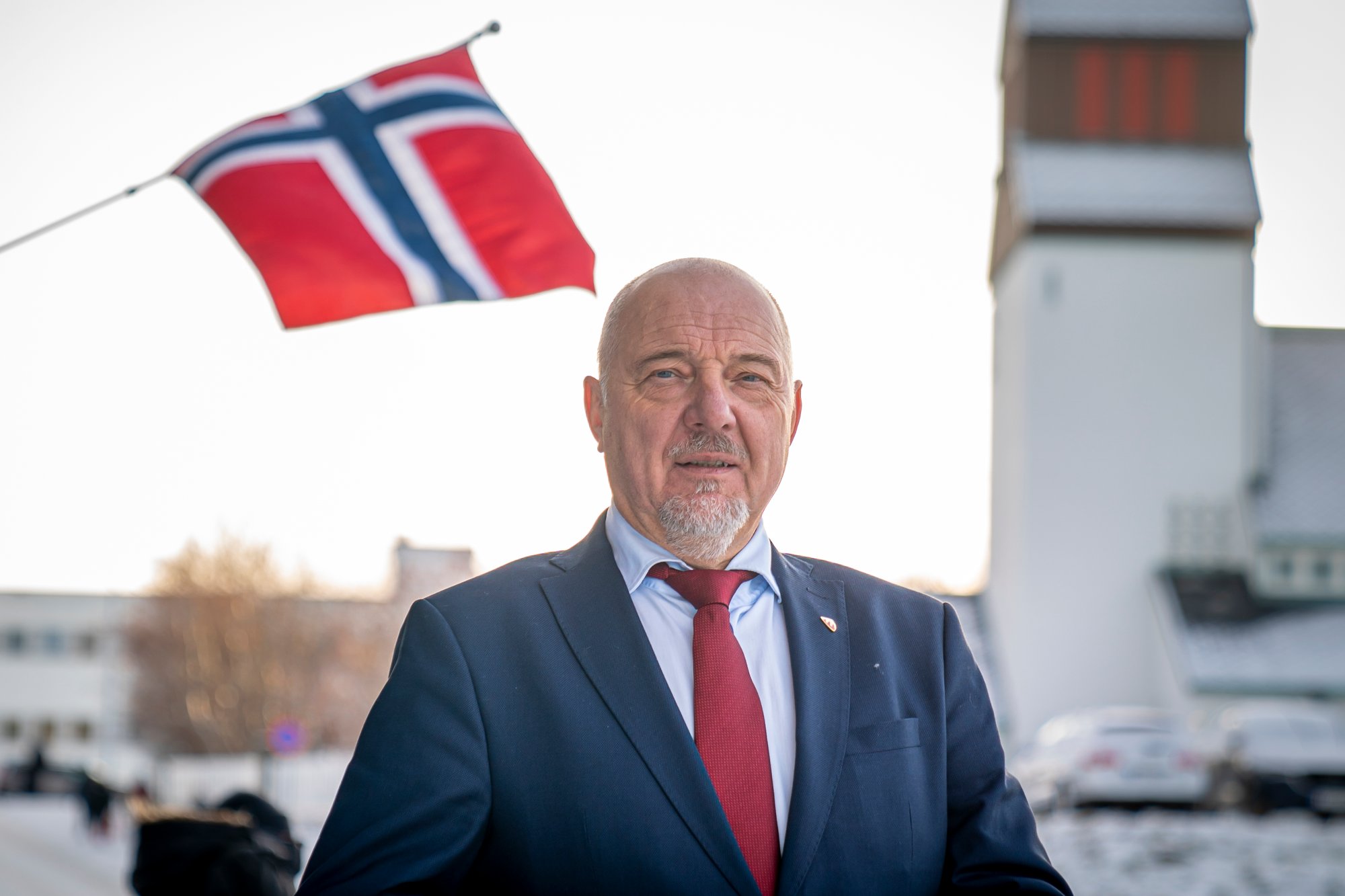
"Kirkenes is a Russian city in Norway", said the then Kirkenes mayor Rune Rafaelsen (Labor Party) in his speech during the 75th anniversary of the liberation of Finnmark in 2019. Photo: Heiko Junge, NTB
It is also very unmusical and disturbing that the Russian political narrative seems to have reached home and taken root with leading representatives of local and regional authorities.
Sør-Varanger's former mayor and former head of the Barents Secretariat, Rune Rafaelsen (Labor Party), said in 2019 in his speech during the 75th anniversary of the liberation of Finnmark that "Kirkenes is a Russian city in Norway". There were many who put the coffee in the neck of this symbol-heavy statement with both the King, the Prime Minister, Norwegian ministers, officials and the Russian Foreign Minister present. Rafaelsen had also wanted Putin as a guest of honor at the event, and later criticized the government for not being present in Moscow during the victory anniversary of World War II.
During the same period, the then leader of Finnmark County Municipality, Ragnhild Vassvik (Labor Party), stated that "it is time for Norway to abolish the sanctions against Russia and instead introduce similar measures against the United States". Those who had a security policy outlook and had familiarized themselves with the security policy background, immediately saw the statements in a larger context - which in the current situation may be clearer to most people.
The then intelligence chief Morten Haga Lunde later gave a lecture in Oslo military society where he stated: "In Norway, Russia is trying to intensify contradictions between northern and southern parts of the country - and between Oslo and the districts - in the view of Russia and Russian conduct." The reactions from East Finnmark were not long in coming. Rafaelsen stated that he would have refused to be perceived as a tool for the Kremlin. A sharp political index finger was pointed at the intelligence chief, and no criticism was desired from the military chief of staff for the work of creating good cooperation between Norway and Russia.
The regional foreign policy work is probably full of good intentions. But all those who play out the initiative must first and foremost be clear about the interests that the games serve. As a small state, Norway is in a vulnerable position. We can not afford to facilitate development trends that can have serious consequences in the long run. It is not necessarily the case that all policies that promote closer cross-border relations are good policies. Foreign policy is the exercise of the long lines and a complicated game of chess, where all actions and statements create or weaken positions - for oneself and one's opponent.
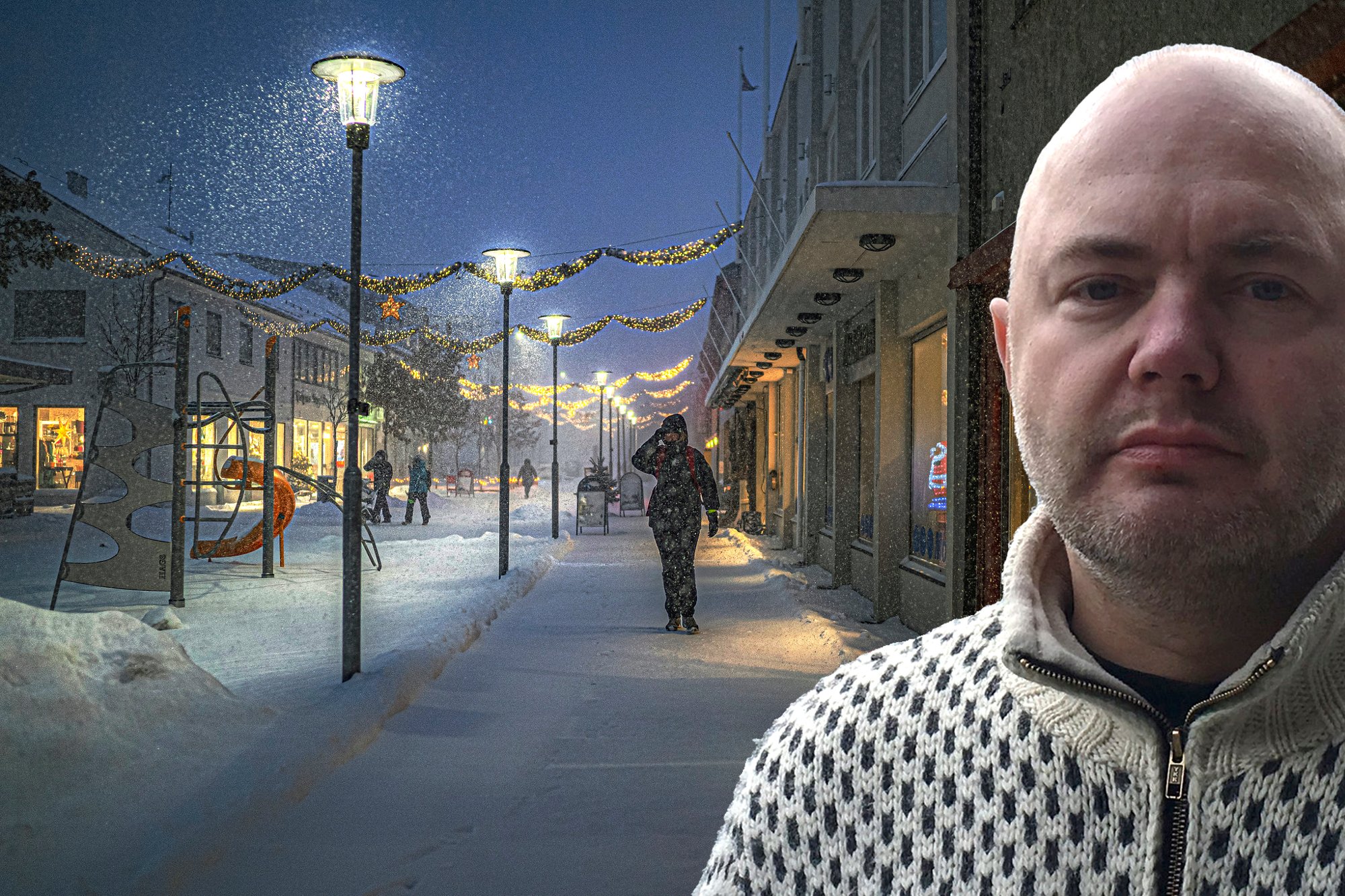
It is not without problems that it is almost as common with Russian as Norwegian spoken in the cityscape in Kirkenes. It has a social psychological effect on both the Russian and Norwegian populations, writes Svein Wara (pictured). Photo: Ksenia Novikova and Nordlys (ASSEMBLY)
Although foreign policy is a state responsibility, it also entails a responsibility for all other levels that undertake to play an active role in the Norwegian-Russian relationship. No one can look into the future, and then it is safest to be sober and laid back. We must not maneuver into a situation where the Russian identity in East Finnmark finds itself in a non-reversible competitive position to the Norwegian one.
Although Norway and Finland have very different stories with Russia, Norwegians have a lot to learn from the Finnish people. After all, we relate to the same regime.
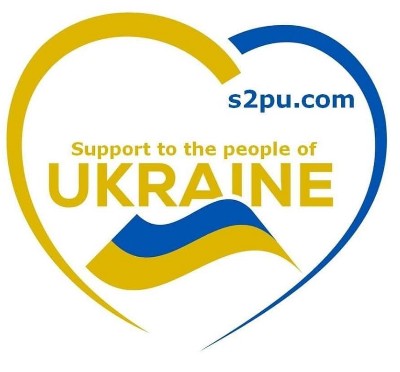
Comments powered by CComment